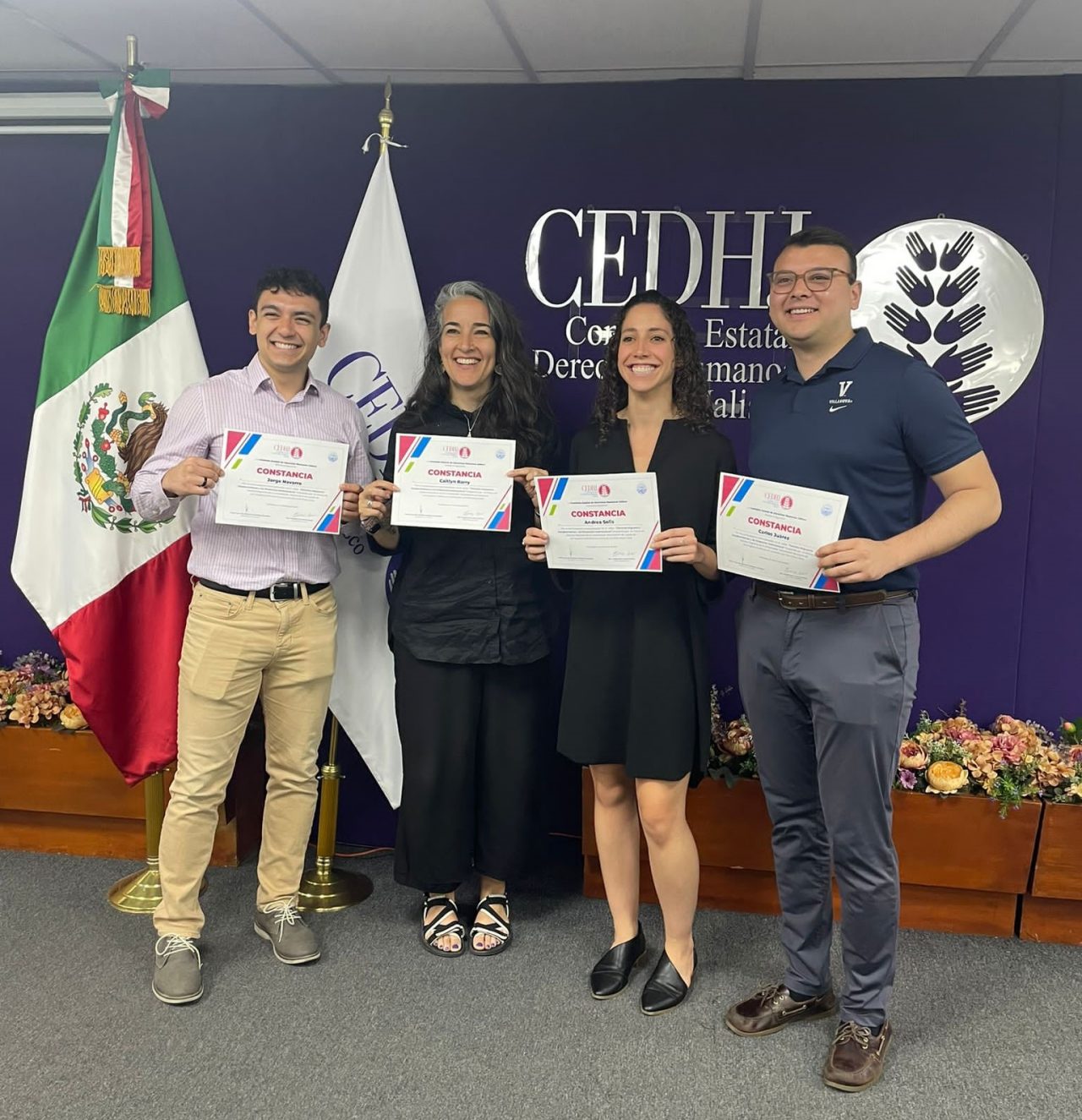Providing Legal Aid Abroad
Earlier this summer, Villanova Law students Carlos Juarez ’25, Jorge Navarro ’25 and Andrea Solis Canto ’25 participated in a week-long legal aid trip in Guadalajara, Mexico, organized by the Loyola Immigrant Justice Clinic at the Loyola Marymount University Law School in Los Angeles.
In Mexico, students from Villanova and Loyola attended comparative law classes at Instituto Tecnológico y de Estudios Superiores de Occidente (ITESO), the Jesuit University of Guadalajara and provided pro bono legal aid to migrants through the FM4 Paso Libre shelter. The shelter serves in-transit migrants, including asylum seekers, LGBTQ+ immigrants and deported individuals navigating re-entry challenges. Juarez, Navarro and Solis Canto also delivered a presentation on migrant workers’ rights in the United States to the State Commission on Human Rights for the State of Jalisco, Mexico.
Professor Caitlin Barry, director of the Clinical Program at Villanova Law, organized the trip.
“I am so grateful to Loyola for inviting us to join them and to the FM4 Paso Libre shelter for hosting us, and I am beyond proud of this incredible group of students,” said Barry. “It was such a unique opportunity to learn from advocates across borders about how we can deepen our solidarity with people who are migrating.”
Juarez said he appreciates the law school’s emphasis on gaining pro bono experience through opportunities like this trip.
“Advocacy-focused faculty like Professor Barry are creating inspiring opportunities through Villanova Law’s commitment to pro bono efforts,” said Juarez. “This experience offered me, a corporate law-focused student, a chance to participate in a pro bono effort outside of my area of study…and give back to a community I feel very connected to.”
Navarro and Solis Canto echo Juarez’s enthusiasm.
“Our time at the shelter allowed us to better understand the challenges migrant persons and their families must overcome in transit to the U.S.,” said Solis Canto. “I came to Villanova Law to pursue a career in immigration law and public interest, and this experience gave me a clear view of the intersectional challenges these groups face.”
Adds Navarro, “We are so thankful to Professor Barry and Villanova Law for making this experience possible. This time in Mexico helped us all understand the impact you can make on another person’s life, and that makes it all worth it.”

